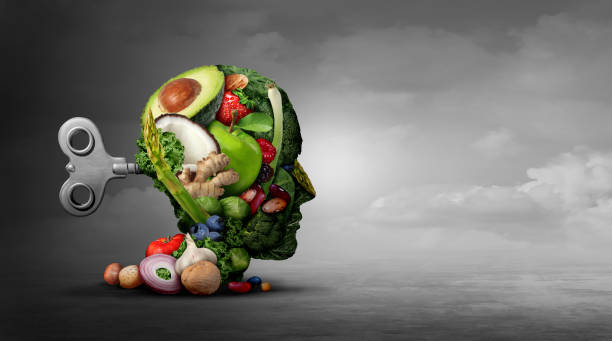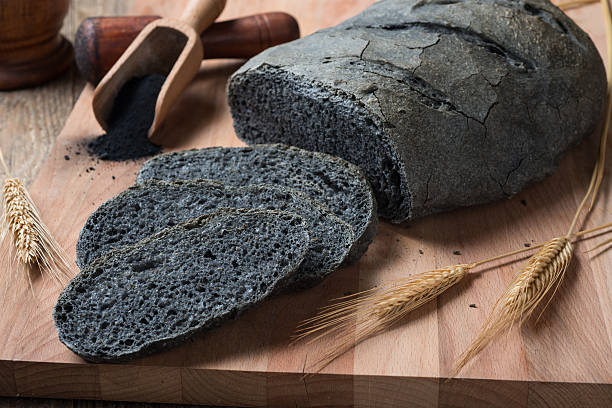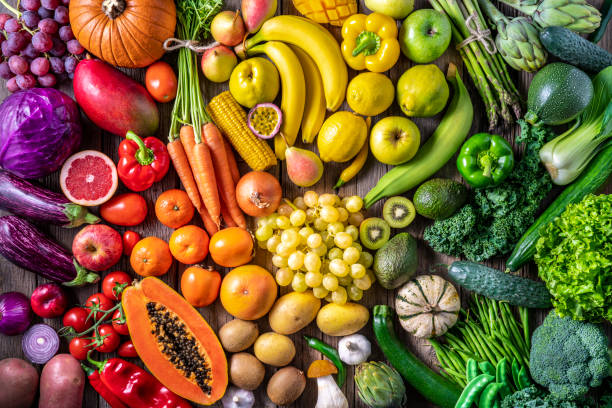We often hear that a healthy diet is key to maintaining a healthy body, but did you know that what you eat can also have a profound effect on your mental well-being? The connection between food and mood is a growing area of research, with more and more studies pointing to the significant impact that nutrition has on mental health. Certain foods are packed with nutrients that support brain function, boost mood, reduce anxiety, and even improve cognitive performance. In this article, we’ll explore how specific foods—like omega-3-rich fish, dark chocolate, and fermented foods—can enhance mental health and help you feel your best, both physically and emotionally.
1. Omega-3-Rich Fish: The Mood-Boosting Fats
Omega-3 fatty acids are a type of polyunsaturated fat that is essential for brain health. These fats are not only beneficial for cardiovascular health but also play a critical role in improving mood and cognitive function. Fish such as salmon, sardines, mackerel, and anchovies are all rich sources of omega-3s.
How Omega-3s Help: Omega-3 fatty acids are key components of the brain’s cell membranes and are involved in the communication between brain cells. Research has shown that omega-3s can help reduce symptoms of depression and anxiety by promoting healthy brain function and reducing inflammation in the brain. They are also linked to the production of serotonin and dopamine, two neurotransmitters that regulate mood, motivation, and overall happiness.
Food Sources:
- Salmon, mackerel, sardines, herring
- Chia seeds, flaxseeds, and walnuts (for plant-based sources)
Recipe Idea: Try a simple grilled salmon salad with leafy greens, avocado, and a citrus vinaigrette for a light, mood-boosting meal.
2. Dark Chocolate: The Sweet Mood Enhancer
Dark chocolate, particularly varieties with 70% cacao or higher, is often touted as a feel-good food. But it’s not just the indulgence factor—it’s the nutritional profile of dark chocolate that can have a positive impact on your mental health.
How Dark Chocolate Helps: Dark chocolate is rich in flavonoids, particularly one called epicatechin, which has been shown to have neuroprotective effects. It boosts blood flow to the brain, which can improve cognitive function and mood. Additionally, dark chocolate stimulates the production of endorphins, the “feel-good” chemicals in the brain, and contains serotonin precursors, which can help alleviate feelings of stress and anxiety. Furthermore, consuming small amounts of dark chocolate can help regulate cortisol levels, which are often elevated during times of stress.
Food Sources:
- Dark chocolate with 70% or more cacao
- Raw cacao nibs
Recipe Idea: Make a healthy dark chocolate bark with almonds, dried berries, and a sprinkle of sea salt for a delicious and mood-boosting treat.
3. Fermented Foods: Gut Health and Mental Well-Being
Did you know that your gut health is intricately connected to your brain health? This is due to the “gut-brain axis,” which links the gut and the brain through a complex network of signals. Fermented foods, such as yogurt, kefir, kimchi, sauerkraut, and miso, are excellent for supporting a healthy gut microbiome, and a healthy gut can positively influence mood, mental clarity, and emotional balance.
How Fermented Foods Help: Fermented foods are rich in probiotics, which are beneficial bacteria that support gut health. A balanced gut microbiome is thought to help regulate the production of neurotransmitters like serotonin, which plays a key role in mood regulation. Studies have shown that a healthy gut microbiome can help reduce symptoms of depression, anxiety, and even stress. In fact, a significant percentage of serotonin is produced in the gut, which is why maintaining gut health is so important for mental well-being.
Food Sources:
- Yogurt and kefir (especially with live active cultures)
- Kimchi, sauerkraut, and pickles
- Miso, tempeh, and other fermented soy products
Recipe Idea: Enjoy a nourishing bowl of miso soup with tofu and vegetables, or top your salad with a scoop of fermented sauerkraut for a gut-friendly, mood-boosting boost.
4. Leafy Greens: Nutrient-Dense Mood Supporters
Leafy greens like spinach, kale, and Swiss chard are packed with vitamins, minerals, and antioxidants that support both physical and mental health. These nutrient-dense vegetables are particularly rich in folate, a B vitamin that plays a key role in mood regulation and cognitive function.
How Leafy Greens Help: Folate is involved in the production of neurotransmitters like serotonin, which helps regulate mood and reduce symptoms of depression. Low levels of folate have been associated with a higher risk of depression, and eating folate-rich foods can help keep those levels in check. Leafy greens are also rich in magnesium, a mineral that can help reduce symptoms of anxiety and improve overall brain function.
Food Sources:
- Spinach, kale, Swiss chard, collard greens
- Romaine lettuce and arugula
Recipe Idea: Try a vibrant kale salad with roasted chickpeas, avocado, and a tahini dressing, or sauté spinach with garlic and olive oil for a quick side dish that’s both comforting and nourishing.
5. Turmeric: The Anti-Inflammatory Mood Booster
Turmeric, the golden spice commonly found in curry, is known for its potent anti-inflammatory properties, but it also has powerful mood-boosting effects. The active compound in turmeric, curcumin, has been linked to improvements in mood, cognition, and overall mental health.
How Turmeric Helps: Curcumin, found in turmeric, has been shown to increase the levels of brain-derived neurotrophic factor (BDNF), a protein that supports the growth and maintenance of brain cells. It also has anti-inflammatory effects that can help reduce symptoms of depression, which is often linked to chronic inflammation in the brain. Some studies suggest that curcumin can be as effective as certain antidepressant medications in alleviating symptoms of depression.
Food Sources:
- Fresh turmeric root or ground turmeric powder
Recipe Idea: Add turmeric to your morning smoothie, or make a soothing golden milk by mixing turmeric with coconut milk, cinnamon, ginger, and a bit of honey.
6. Berries: Antioxidants for Brain Health
Berries such as blueberries, strawberries, and blackberries are rich in antioxidants, which help fight oxidative stress in the body. Oxidative stress can negatively impact brain function and mental well-being, so eating foods rich in antioxidants is a great way to protect the brain and improve mood.
How Berries Help: Berries, especially blueberries, are high in flavonoids, which have been shown to reduce symptoms of depression and improve memory. They also help reduce inflammation in the brain and protect against age-related cognitive decline. The antioxidants in berries combat free radicals, reducing oxidative stress that can impair brain function and mood regulation.
Food Sources:
- Blueberries, strawberries, raspberries, blackberries
Recipe Idea: Top your oatmeal or yogurt with fresh berries and a sprinkle of chia seeds for a delicious and brain-boosting breakfast.
Final Thoughts
The foods we eat have a powerful influence on our mental health and mood. By including more brain-boosting foods—such as omega-3-rich fish, dark chocolate, fermented foods, leafy greens, turmeric, and berries—into your diet, you can support cognitive function, improve mood, and reduce symptoms of anxiety and depression. Whether you’re looking to elevate your daily meals or simply enjoy a snack that helps you feel your best, these nutrient-dense foods can help fuel both your body and mind. So, next time you’re planning your meals, remember that what you put on your plate could be a step toward feeling happier and healthier.





